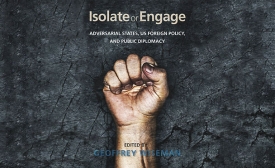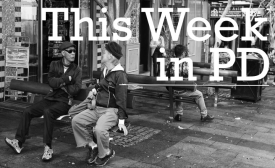cuba
Despite the politics of the last decades, baseball clearly played a very crucial role in shaping up and strengthening the common bonds between the US and Cuba separated by only 90 miles. The recently announced restoration of diplomatic relations between the two countries marks the start of a new era for the two peoples.

Professors Wiseman, English and Nguyen led a timely and engaging discussion about their book, "Isolate or Engage: Adversarial States, U.S. Foreign Policy, and Public Diplomacy."
Juana Mora Cedeño of the Rainbow Project, an independent Cuban advocacy organization, told the Washington Blade on Monday that authorities at José Martí International Airport in Havana early on July 6 stopped her and two of her colleagues who were returning from Colombia where they had attended a workshop on documenting LGBT rights abuses.
In addition to tropical scenes and hand-rolled cigars, doctors have become yet another leading force of human resources characteristic of Cuba, not only earning respect and hard currencies from the rest of the world, but also building soft power for the Caribbean island.
The Havana Biennial art exposition wrapping up Monday has been held 12 times since the 1980s. But this is the first since U.S. efforts to improve relations with Cuba began six months ago, allowing an unusually large contingent of American visitors. Here are some observations from U.S. art collectors and their representatives about how Havana's art scene has evolved and the impact of detente. Janda Wetherington, whose Pan American Art Projects gallery in Miami specializes in Cuban art, says prices have gone up since the last Biennial.
Nearly a decade before the U.S. Supreme Court ruled that U.S. laws which criminalize “homosexual conduct” are unconstitutional in the 2003 case Lawrence v. Texas, a gay Cuban man won protection in the United States from the persecution he faced in his native land because of his sexual orientation. It was the first time that persecution based on sexual orientation was established as valid grounds for asylum in the United States.
The correction was delivered with a smirk: “Trienal.” [...] When the Havana Biennial was founded in 1984, it was set up, like much of the Castro government’s internationalist initiatives up to that point, as a Latin American rejoinder to the Anglo-European — or imperialist — skew of global culture. The second biennial expanded its reach to Asia and Africa, and by the third, in 1989, this focus was articulated theoretically, with landmark texts on “Third World aesthetics” published in the official catalogue that have since become part of the art historical canon.

PD News highlights this week's triumphs and stumbles in communication and listening.







